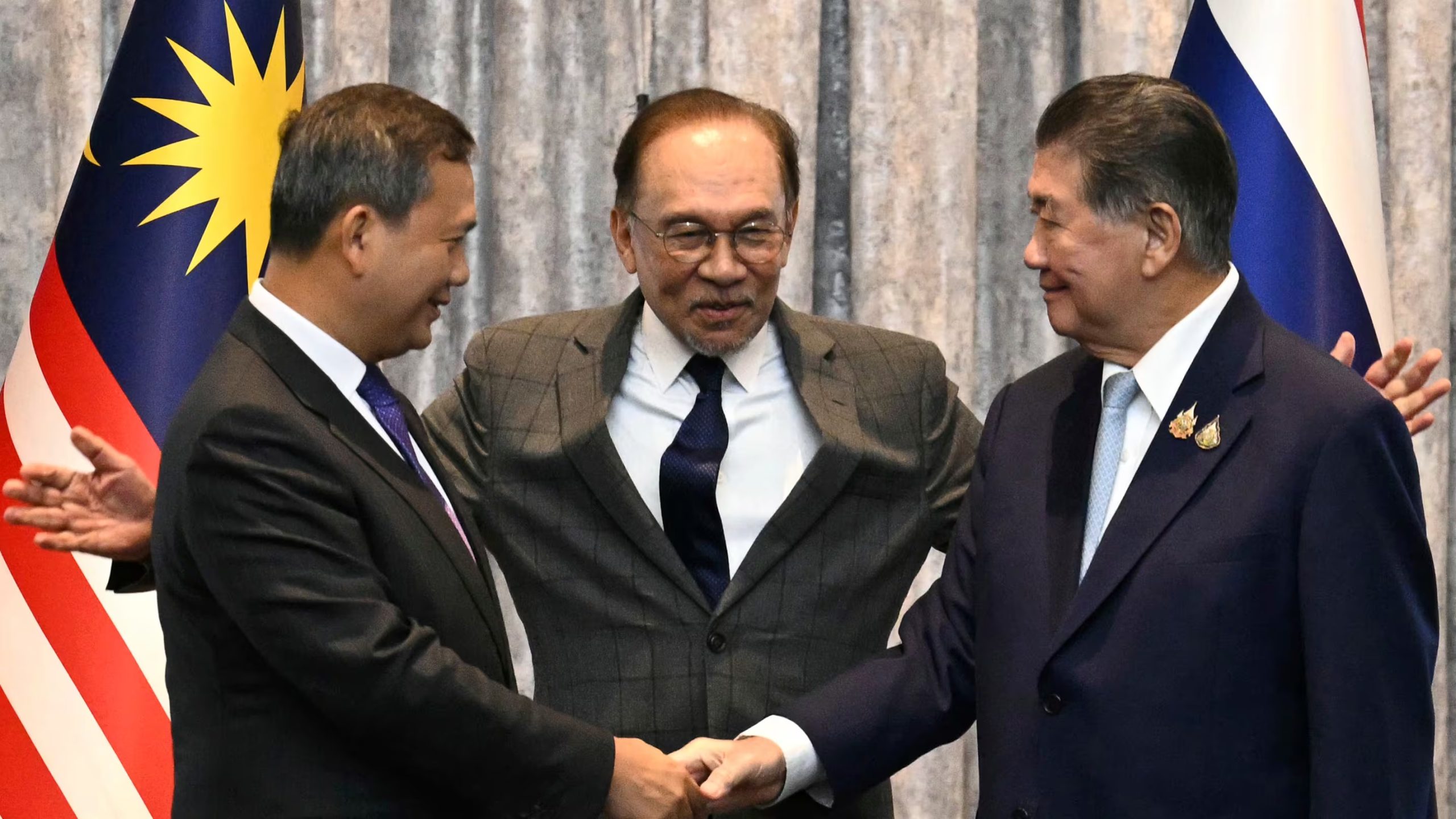Thailand’s acting Prime Minister Phumtham Wechayachai has attempted to calm public anxiety over a shaky ceasefire with Cambodia, just hours after Thai military officials accused their neighbor of violating the newly signed agreement to halt border hostilities.
The ceasefire deal, brokered on Monday during emergency talks in Malaysia, was intended to end five days of the most intense fighting between the two countries in over a decade.
Local media sources say the border clashes left 38 people dead and forced hundreds of thousands to flee their homes.
Despite the diplomatic breakthrough, tensions resurfaced almost immediately.
Shortly after the ceasefire was announced, Thailand’s military alleged that Cambodian forces had opened fire in several areas along the contested frontier.
Major General Winthai Suvaree, a spokesperson for the Thai military, condemned the attacks as a calculated breach of the ceasefire, aimed at undermining mutual trust.
In response, Cambodia firmly denied the accusations. Defense Ministry spokesperson Maly Socheata insisted that Cambodian forces were fully complying with the ceasefire.
“The Royal Cambodian Armed Forces have strictly followed all orders and agreements under the truce,” a ministry statement read.
The conflicting narratives have cast early doubt on the durability of the ceasefire.
Seeking to dispel fears of renewed fighting, Prime Minister Phumtham told reporters on Tuesday that the situation on the ground remained stable.
“There is no escalation. Right now, things are calm,” he said.
International pressure played a significant role in pushing both nations to the negotiating table.
U.S. President Donald Trump, who had been closely monitoring the situation, warned over the weekend that ongoing trade talks with both countries would be suspended unless hostilities ended.
He further threatened a 36% tariff on Thai and Cambodian goods beginning August 1 if the violence continued.
Meanwhile, the Thai government has faced mounting domestic criticism for what some perceive as a weak response to months of rising tensions along the border.
In a tense exchange during Tuesday’s press briefing, one reporter challenged Prime Minister Phumtham.
The reporter asked whether the ceasefire agreement was made simply to protect trade negotiations rather than national security interests.
On the ground, military commanders from both countries met Tuesday near the disputed zone to discuss the terms of the truce.
They agreed to uphold the ceasefire, prohibit the use of force or weapons against civilians, and avoid troop movements that could reignite conflict.
The meeting also resulted in commitments to assist with the recovery and repatriation of those injured or killed in the fighting and to establish a bilateral coordination team for local monitoring.
Cambodian Prime Minister Hun Manet, addressing citizens via a Facebook post early Tuesday, said the situation along the front lines had “significantly calmed” since the ceasefire took effect at midnight.
U.S. President Trump, in a characteristically self-congratulatory statement on social media, claimed credit for the ceasefire and referred to himself as the “President of PEACE.”
Despite reassurances, Thai authorities have cautioned civilians who evacuated from the border region not to return yet, warning that the situation remains fluid.
In Cambodia’s Samraong city, about 20 kilometers from the frontier, an AFP journalist reported that artillery fire ceased in the final minutes before midnight and quiet persisted into the morning.
The ceasefire talks were hosted by Malaysia, which currently chairs the Association of Southeast Asian Nations (ASEAN).
Delegations from the United States and China were also present, signaling the international concern surrounding the dispute.
As part of the ceasefire framework, a cross-border committee is scheduled to convene in Cambodia on August 4 to further address tensions and discuss long-term solutions.
Malaysian Prime Minister Anwar Ibrahim, who facilitated the negotiations, described the ceasefire as a “critical first step toward de-escalation and restoring peace.”
United Nations Secretary-General António Guterres also welcomed the agreement.
A spokesperson for Guterres said he urged both countries to fully implement the truce and create a climate suitable for addressing deeper, unresolved issues.
Cambodia’s Prime Minister Hun Manet expressed optimism about the ceasefire.
Manet said he believed it would allow displaced civilians to return home and pave the way for renewed trust and cooperation.
His Thai counterpart echoed this sentiment, emphasizing Thailand’s commitment to peace and the need for both sides to implement the agreement in good faith.







